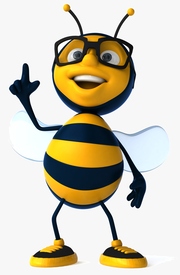How to Prepare Your Child for a Spelling Bee
Participating in a spelling bee can be a challenging but exciting experience for children. Big prizes and bragging rights await many winners, but a spelling bee can be nerve-wracking if your child isn’t great under pressure or gets nervous in front of others. Preparing for a spelling bee requires practice, dedication, and time, but it doesn’t need to be something to dread.
Here are some tips you can keep in mind when helping your child prepare for a spelling bee.
Start Studying Early
It’s important to begin preparing for the spelling bee well ahead of time. Don’t wait till the night before to start reviewing and studying words! This will ensure you give your child enough time to learn and practice the words but also understand why words are spelled in the way they are.
Start by reviewing the provided word list and identifying words your child may struggle with. Look at the words your child is having trouble with and try to find books or other things they may have read which contain the word. Once they recognize the word and you explain the grammar rules they are having trouble with, test them further until they don’t spell the word incorrectly anymore.
If it’s a bit of a more advanced spelling bee, consider using a random word generator. This is a great way to expand their vocabulary and help them learn how to spell words they may not have come across before in their regular coursework.
Develop a Study Plan
Once you have identified the words your child needs to study, develop a concrete plan. Set aside a specific time each day for spelling practice and use a variety of study methods such as reviewing flashcards, writing the words repeatedly, and using them in sentences.
Review the words out of order to keep your child from simply memorizing letters, too. There’s no telling what words they will be given on their turn or what order the words will be read out in, so try to keep them from becoming too complacent.
Incorporate Assessment
Set up weekly spelling tests to monitor improvement and pinpoint challenging words. You can use an easy grade calculator to simplify grading and provide quick feedback. Other assessment tools include flashcards, mobile apps, and audio recording devices. You can seek an expert’s help to conduct the right method suitable for your child’s learning needs.
Encourage Reading
Encourage your child to read regularly, as this can help improve their spelling and vocabulary. We lightly touched on this beforehand — once your child sees and recognizes a word, it will become more familiar and easier to spell. With regular reading, your child will become naturally exposed to other words and increase their vocabulary. Eventually, they will begin to recognize new words from books on future spelling bees and tests and already know how to spell them.
Make It Fun
Make spelling practice fun by incorporating games and activities into the study plan. For example, you could create a spelling bee game at home or use online resources to make spelling practice more engaging.
The occasional reward also doesn’t hurt. Small incentives like a piece of candy or extra screen time are harmless yet motivating things to offer your child to focus on the task at hand when it comes time to study.
You might also further entice your child with a bigger reward if they win the spelling bee or come close. A trip to the movie theater, pizza night, or being able to stay up a little past bedtime are things every kid will want to work a little harder to earn.
Practice in Different Contexts
Encourage your child to practice spelling words in different contexts, such as writing them in a sentence or spelling them out loud. This will help them become more comfortable with the words and improve their spelling accuracy.
If a word has many different spellings, such as “there,” “their,” and “they’re,” make sure your child understands the difference between the various spellings. Multiple words like this might be included together on the word list — let your child know they can ask the moderator to use the word in a sentence so they don’t accidentally provide an incorrect spelling.
Get Mentally Ready
Most of the mistakes people make in spelling bees aren’t because they don’t know how to spell a word — several errors come from simple mental mistakes. Remind your child to try and clear their mind, take a deep breath, and pay attention to the moderator. If they feel nervous at the podium, make sure they know to pause and ask the moderator to repeat the word if needed.
On the day of the big event, send them off with a special breakfast. If pancakes or sausage are more of a weekend thing, get up a few minutes earlier than usual to whip up something special. This will get your child excited and ensure they are properly fueled up.
Stay Positive
While preparing for a spelling bee, make sure you’re maintaining a positive attitude and encouraging your child. Celebrate their successes and help them learn from their mistakes. Participating in a spelling bee can be a valuable learning experience for children, as well as a major confidence booster. With the right preparation and support, your child can improve their spelling and personal skills and feel like a real winner on stage.




